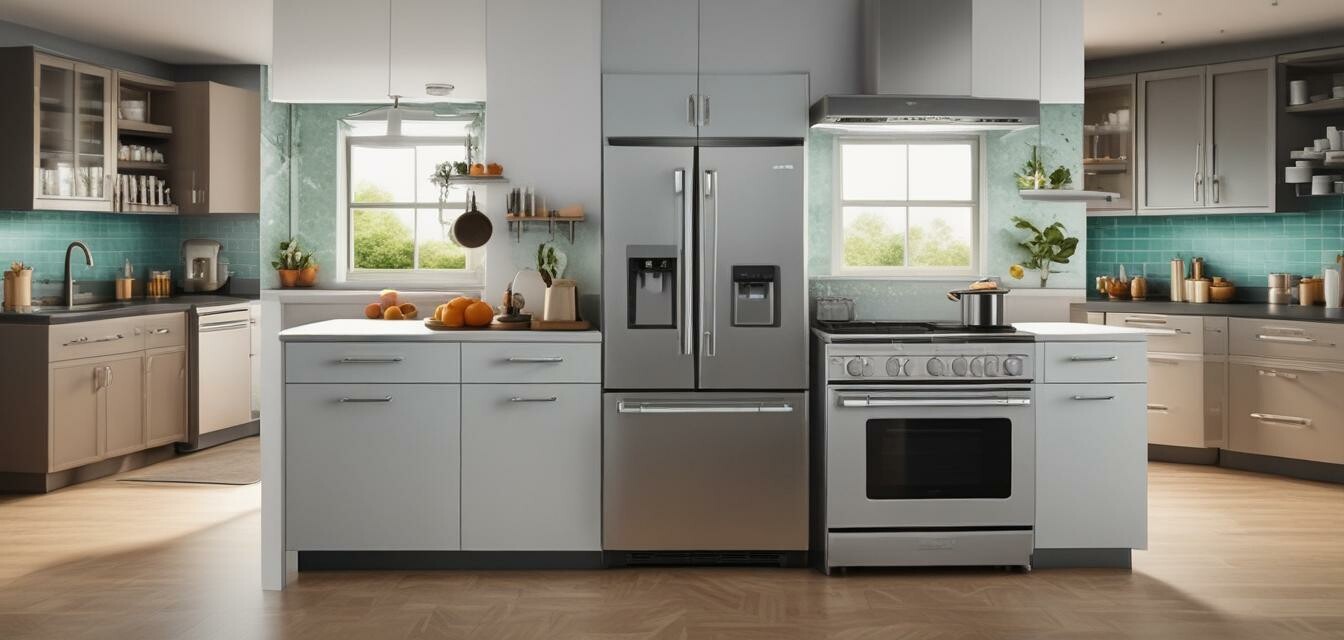
Avoiding Common Mistakes with Energy Efficient Appliances
Key Takeaways
- Understand the importance of proper installation for optimal energy efficiency.
- Regular maintenance can significantly boost appliance performance.
- Using appliances at full capacity maximizes energy savings.
- Avoid overestimating the energy savings of inefficient usage paradigms.
- Read the manuals to ensure the best practices are followed for your appliances.
Energy-efficient appliances can lead to significant savings on electricity bills while contributing to a greener planet. However, many users fall into common traps that limit their potential benefits. This article will help you identify and correct these pitfalls, ensuring you get the most out of your energy-efficient investments.
Understanding Energy-Efficient Appliances
Energy-efficient appliances are designed to use less electricity without sacrificing performance. They come in various categories such as air conditioners, dishwashers, and refrigerators. Before using these appliances, it's essential to understand how to maximize their effectiveness.
Common Mistakes to Avoid
| Mistake | Consequence | Correction |
|---|---|---|
| Improper Installation | Can lead to inefficiencies and higher energy bills | Follow the manufacturer's installation instructions carefully |
| Neglecting Regular Maintenance | Reduces appliance lifespan and performance | Schedule routine cleanings and checks |
| Using Appliances Below Capacity | Wastes energy and minimizes efficiency | Use the correct load size for washing machines and dishwashers |
| Ignoring Energy Labels | Potentially purchasing inefficient appliances | Always check ENERGY STAR ratings before buying |
| Overloading Appliances | May strain the appliance and lead to breakdowns | Follow load recommendations in the user manual |
Maximizing Energy Savings
Implementing some minor changes in habits can lead to substantial energy savings:
- Run dishwashers and washing machines on full loads.
- Use the right settings to avoid overuse of energy.
- Keep appliances clean and well-maintained.
- Unplug appliances not in use to prevent phantom energy loss.
Importance of Reading Manuals
Always read the user manuals provided with your appliances. They often contain valuable information about energy-saving modes and optimal usage practices. If you're unsure how to properly use your appliance, refer back to the manual or visit our Tips and How-to Articles section for additional guidance.
Pros and Cons of Energy-Efficient Appliances
Pros
- Lower energy bills
- Environmentally friendly
- Generally quieter operation
- Usually offer advanced features
Cons
- Higher upfront costs
- Specific usage guidelines may need adaptation
- Less powerful in some cases compared to standard models
Summary
By avoiding the common mistakes associated with energy-efficient appliances, you can enhance not only the efficiency of your devices but also your overall home energy consumption. Embrace proper installation, regular maintenance, and mindful usage to take full advantage of these modern appliances.
Additional Resources
For more information on purchasing energy-efficient appliances, visit our Buying Guides section.
Tips for Beginners
- Start with thorough research on energy-efficient models.
- Implement the best practices mentioned above without delay.
- Monitor your energy consumption periodically.
